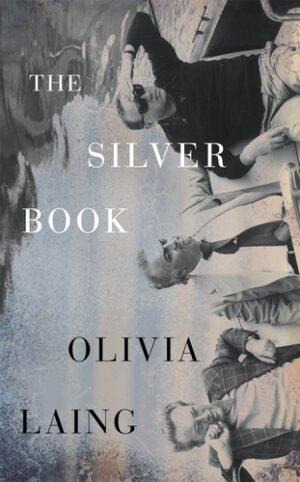It’s the tail-end of an Italian summer in 1974, and English art student, Nicholas, is sketching the churches of Venice. He has the looks of a Renaissance angel and an obvious artistic flair, irresistible to the wandering eye of Danilo Donati, celebrated costume and set designer. Donati is in need of an apprentice (and another lover is always welcome). In The Silver Book by Olivia Laing, real-life people and events meld artfully with fiction, as Nicholas is invited into the decadent world of 1970’s Italian cinema and the lives of directors Federico Fellini and Pier Paolo Pasolini. Through the prism of the cinematic arts and its legendary characters he bears witness to a turbulent Italian era.
Laing’s brilliantly inspired story hooks from the very beginning, with the introduction of Nicholas as a man in flight. His hurried escape from London is not explained, but we know it involves a newspaper headline and a gentleman, the memory of whom’s scent haunts Nicholas, ‘…cigarettes, cologne, a touch of violets if his wife had kissed him goodbye that morning’.
Attempting to bury his secret, Nicholas accepts Donati’s offer of work and becomes both his apprentice and his lover, against the backdrop of the filming of Fellini’s Casanova (loosely based on the memoirs of the infamous lover) and then later, Pasolini’s controversial final film, Salò.
Laing paints a vivid picture of Nicholas’ first months in his role as Vespa-riding studio ‘mozzo’, a gopher-type role but one of the team. Whizzing between locations, sketching architectural details to aid Donati in imagining the sets. Casanova’s Venice is to be totally recreated on a studio lot, lagoon waves formed from sheets of black plastic. Ice will be water sprayed with paraffin wax, any snow may consist of Parmesan cheese.
Because film is deceptive, Donati declares, ‘You can’t just film a bowl of cherries and expect them to look like cherries on screen.’
This theme of illusion recurs within the story, in relation to both Nicholas’s personal history and the characters he finds himself surrounded with in Donati’s seductive world. As chief illusionist, Donati is charged with realising the visions of Fellini and Pasolini; when Casanova is paused for financial reasons, he takes Nicholas with him to the much darker prospect of Salò.
Laing’s second novel is ambitious, exploring love, sexuality, power and its abuses, the politics of art and artifice. Having quelled his own anxieties, Nicholas senses their reemergence, nagging and whispering in his mind, increasingly so in the environs of the Salò film set. At Nicholas’ art school in London, Pasolini had been revered as ‘a sexy god…a fox who raided the henhouse of the bourgeoisie,’. His latest project is a brutally graphic reimagining of the Marquis de Sade’s 120 Days of Sodom, setting it in the town of Salò, the last bastion of Italian fascism.
Pasolini intends to provoke the world with this movie, to show that fascism may morph but never dies. The onlooking Nicholas cannot imagine that this is the director’s final film or the part he himself will play in the proceedings.
This compelling and memorable novel makes checking out both films an absolute must. Steel yourself.
The Silver Book by Olivia Laing is published by Hamish Hamilton, 256 pages.





